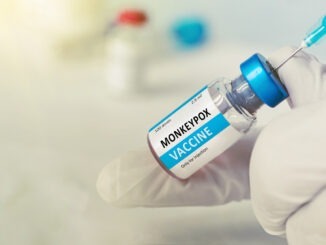
As reported by the BBC News, two more people have been identified with monkeypox this week
Both of the people live in the South East of England, the area of the country where the majority of the cases have been identified .
Monkeypox is typically linked with travel to West Africa, through it is believed this outbreak has spread in the community.
The UK Health Security Agency (UKHSA) has said the virus does not spread easily and that risk is low.
Most of the cases so far are in men who are gay or bisexual.
The UK Health Security Agency (UKHSA) has warned that people in these communities should be aware of any unusual rashes or lesions on their body, especially their genitalia.
What is monkeypox?
Monkeypox is not normally a sexually-transmitted infection, but it can be passed on by direct contact during sex.
Prof Kevin Fenton has announced that the current strategy is to “vaccinate the highest priority people”.
“We’re watching closely to see how this spreads over the next week or two and then we’ll get a better sense of how to project and plan for the month ahead,” he added.
Chief medical adviser at UKHSA, Dr Susan Hopkins, commented: “These latest cases, together with reports of cases in countries across Europe, confirms our initial concerns that there could be spread of monkeypox within our communities.”
General practitioners are being asked to be alert to people coming forward with rashes without any clear diagnosis.
What are the symptoms of monkeypox?
Symptoms include fever, headache, muscle aches, backache, swollen lymph nodes, chills and exhaustion.
Any rash typically begins on the face and then spreads to other parts of the body such as the genitals. The rash changes to look like chickenpox or syphilis, before finally forming a scab which later falls off.
Most people recover within a few weeks.


Be the first to comment